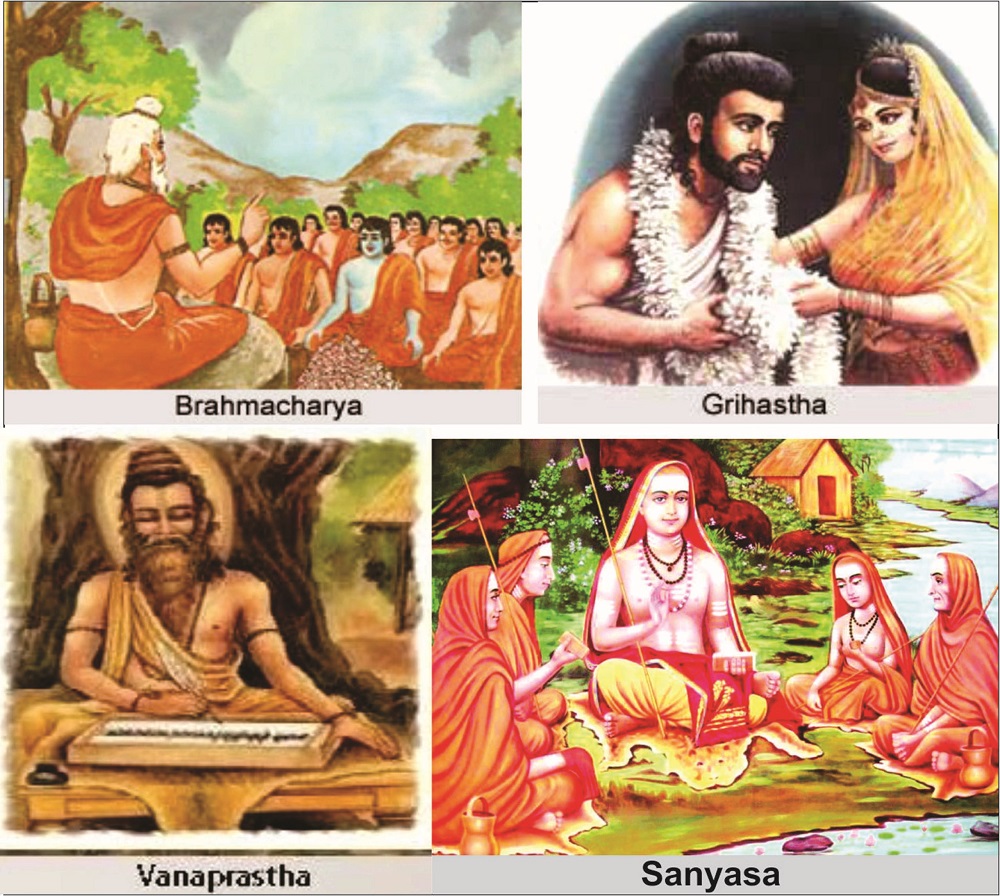Varna Ashram

The term “Varna Ashram” combines two distinct concepts from ancient Indian society: “Varna” and “Ashram.” Let’s break down each term:
Varna:
In ancient Indian society, the concept of “Varna” referred to the classification of individuals into different social classes or categories based on their predominant qualities, occupations, and roles. There were four primary Varnas, each associated with specific duties and responsibilities:
Brahmins (Priests and Scholars): Responsible for education, teaching, and performing religious rituals.
Kshatriyas (Warriors and Administrators): Involved in governance, defense, and protection of the community.
Vaishyas (Merchants and Agriculturists): Engaged in trade, agriculture, and commerce.
Shudras (Laborers and Service Providers): Involved in manual and service-oriented occupations.
It’s important to note that Varna was traditionally ascribed based on one’s birth, and each Varna had its distinct duties within the societal framework.
Ashram:
The term “Ashram” refers to a hermitage or a place of residence for individuals dedicated to a particular stage of life or spiritual pursuit. In Hindu philosophy, life is traditionally divided into four stages, each associated with specific duties and goals:
Brahmacharya (Student Stage): Focused on education, learning, and celibacy.
Grihastha (Householder Stage): Centered around family life, career, and social responsibilities.
Vanaprastha (Retirement Stage): Involves gradual withdrawal from worldly affairs, contemplation, and spiritual pursuits.
Sannyasa (Renunciation Stage): Full renunciation of worldly attachments and complete dedication to spiritual pursuits.
Varna Ashram, in a broader sense:
The concept of Varna Ashram, when combined, refers to the interconnection of social classification (Varna) and the stages of life (Ashram) within the traditional framework of Hindu society. It outlines the duties and responsibilities assigned to individuals based on both their social class and their stage in life.
While the Varna Ashram system has historical significance and played a role in structuring ancient Indian society, it is essential to approach it with an understanding of its historical context and the evolving social dynamics in contemporary times. Modern Indian society has moved away from strict adherence to the traditional Varna Ashram system, emphasizing principles of equality, social justice, and individual choice.
